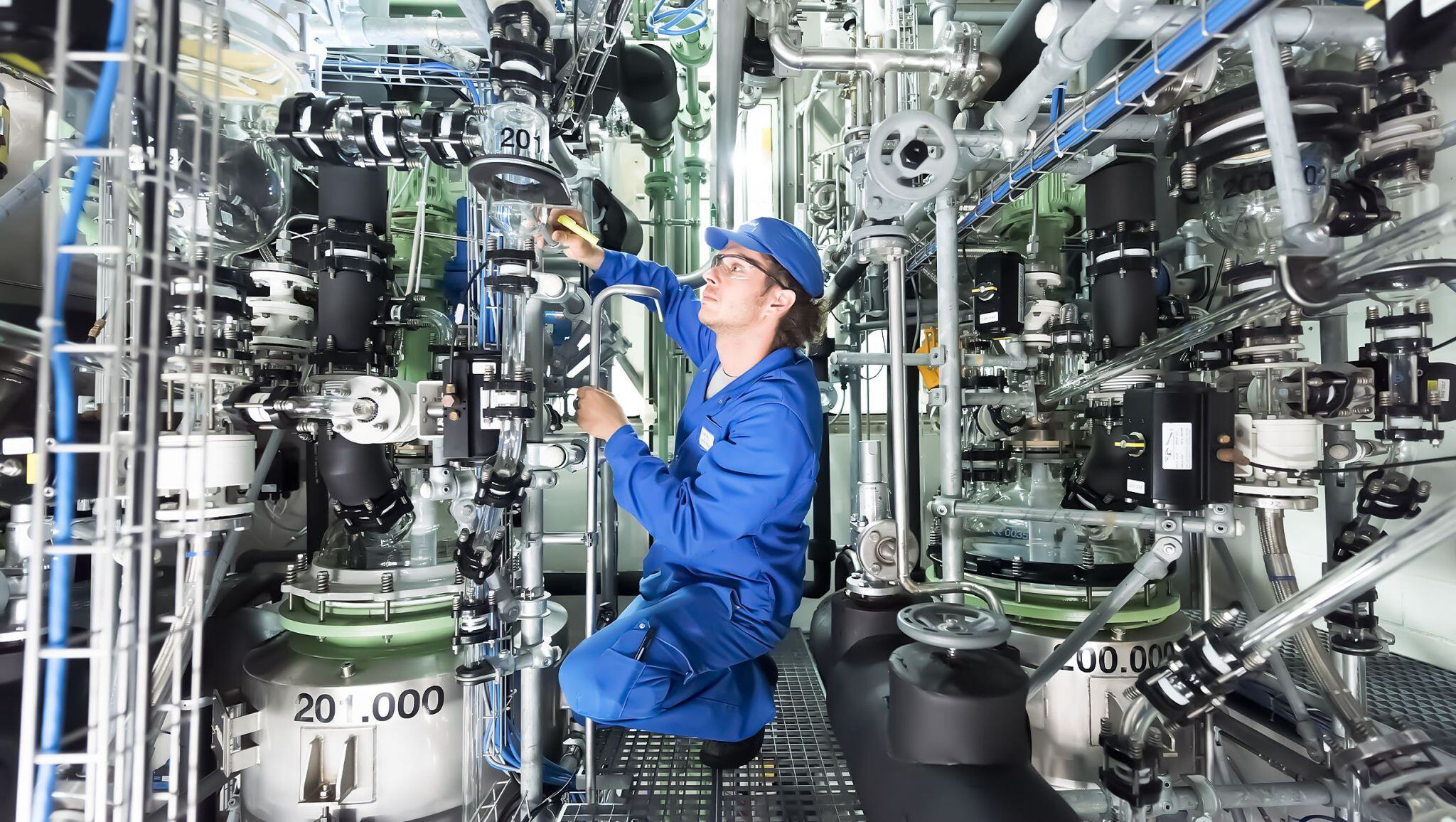With our expertise in process optimization, Siegfried helps customers develop greener production processes for their products to achieve their ambitious sustainability targets.
One of the biggest levers for reducing energy and resource consumption in the pharma supply chain lies in the efficient production of active ingredients and pharmaceuticals. Siegfried therefore consistently works on optimizing our processes across the entire production cycle.
Reducing resource consumption in API production
A significant lever for reducing energy and material consumption in particular lies in the API production itself. Siegfried has developed and implemented various measures to achieve this. One lever, for example, is the implementation of green chemistry. This involves minimizing or completely eliminating the use of hazardous substances. We target the simple things first as they can have a big impact. Some processes can operate just as effectively with less reagent and higher throughput. We design experiments to see how far we can ‘green-shift’ an existing process to reduce inputs.
In some cases, we go further and fundamentally redesign a manufacturing process by using more creative and innovative chemistry—a so-called ‘second-generation process’. Thus, we rethink the API synthesis route and optimize manufacturing processes for selected API portfolio products. Such a method replaces the original API synthesis with more efficient approaches, e.g., shorter synthetic routes and more selective catalytic processes. For one of our API Portfolio products, the synthesis route was shortened from 17 to 10 process steps, producing the API faster than the traditional method. As a result, the raw material and energy consumption was also reduced by half, and at the same time, the process generated 50% less waste and thus had a smaller environmental impact. Ultimately, all these benefits lead to higher product yields for our customers.
Computer modelling for scaling-up
Not only shorter processes, but also the tool of computer simulations contribute to a better environmental footprint in active ingredient production at Siegfried. For example, data analysis enables Design of Experiments (DoE) for efficient laboratory development and Quality by Design (QbD) to achieve optimal product quality. And Big Data (process data) analysis helps to improve processes and to stabilize them at an optimum level.
Computer modelling is also being used for “scaling-up” from small lab equipment to large reactors in the production plant. This allows, for example, to predict heat transfers or flow conditions in the large reactor. In the past, scientists would use an intermediate-scale reactor as a stepping-stone, because chemical processes can be more challenging as the reactor gets bigger or changes shape. Nowadays, however, Siegfried’s laboratories have accurate, small-scale models of large production reactors, and we combine these with computer modelling to guide us. This allows us to go straight to the desired manufacturing scale from the lab, without the wasteful and time-consuming experimentation at the intermediate pilot scale.
Membranes reduce waste
One example of a new process technology in API production processes is pervaporation. This is a sustainable solution for the removal of water and methanol from solvents during API manufacturing. This method uses semi-permeable membranes that allow water or methanol molecules to pass through them. Through this process, the waste is reduced by up to 15 times compared to distillation. In addition, this approach has a smaller carbon footprint than incinerating the waste created in traditional methods. The use of pervaporation membranes offers an environmentally responsible way of managing solvent drying with lower energy requirements. At the moment, Siegfried is testing this technology to deploy it in the near future.
Enhanced distillation techniques
Distillation processes that have been in use for centuries and are a common method for separating chemical compounds, also offer the potential for greater efficiency and sustainability thanks to modern and sophisticated technologies. For example, enhanced distillation techniques enable higher product quality, yield, and a more efficient process while reducing waste. At Siegfried, distillation is used in numerous process steps of an API synthesis.
The classical distillation step is often long and thermally intensive. This results potentially in product degradation and yield losses. With increasing inefficiency and resource use, the sustainability of the process also decreases. To address these limitations, Siegfried optimizes the distillation with the help of subject-matter experts and computer simulations. By doing this, the chemical processes can be optimized significantly, and carbon emissions are minimized. Furthermore, the use of solvents can be substantially reduced by selecting the right distillation equipment and conditions.
Carbon neutral by 2050
Siegfried’s sustainability efforts go far beyond optimizing processes. By 2030, we want to halve our carbon footprint compared to 2020, and by 2050 we aim to be carbon neutral. Siegfried’s efforts in sustainability have been recognized by various external parties and independent institutions. In 2022, Siegfried was again rated positively in the ISS ESG Rating, was included in the Dow Jones Sustainability Index Europe for the second time in a row and once again rated AA in the MSCI ESG Ratings in 2023. For EcoVadis, our most recent results reflect “GOLD” for four Siegfried sites and “SILVER” for the other seven sites.
These awards are more than a nice figurehead for Siegfried. Nowadays, many customers expect their CDMO partner to operate and act sustainably. With our expertise in process optimization, we help our customers to develop greener production processes for their products and to achieve their ambitious sustainability targets.
